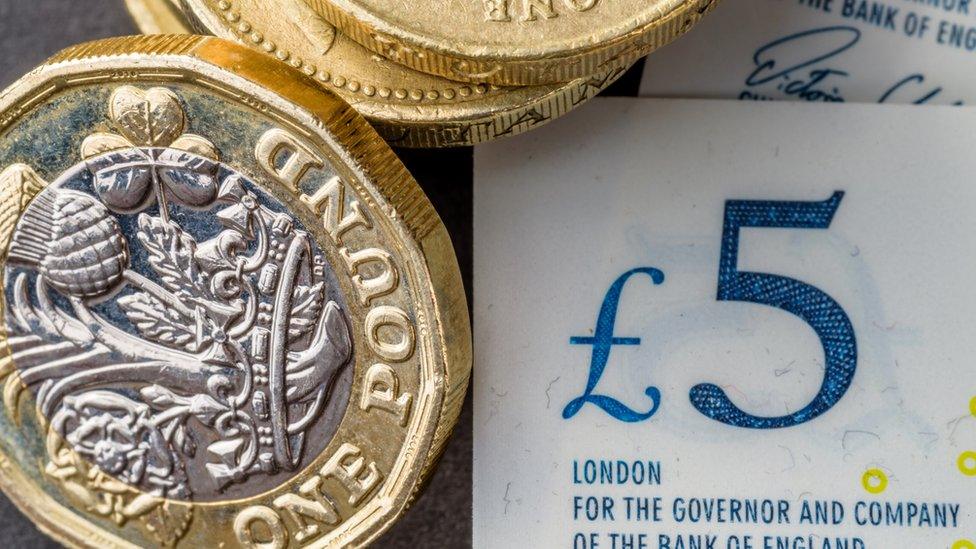Budget 2021: What does it mean for me in Wales?
- Published
- comments
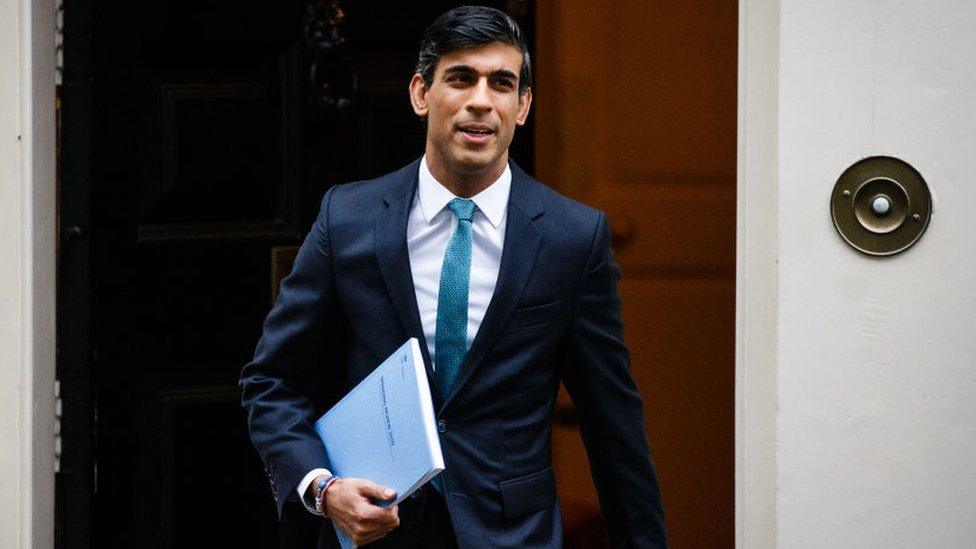
Rishi Sunak's Budget was closely watched because of the huge economic effects of Covid-19
Chancellor Rishi Sunak's annual Budget statement to the House of Commons outlined big decisions on UK government spending, the state of the economy and taxes.
This year a lot of it focused on the economic recovery from Covid, and what will happen to support such as the furlough scheme.
Because some things, like business rates and health, are devolved some announcements were for England-only. So what applies to Wales?
Money in your pocket
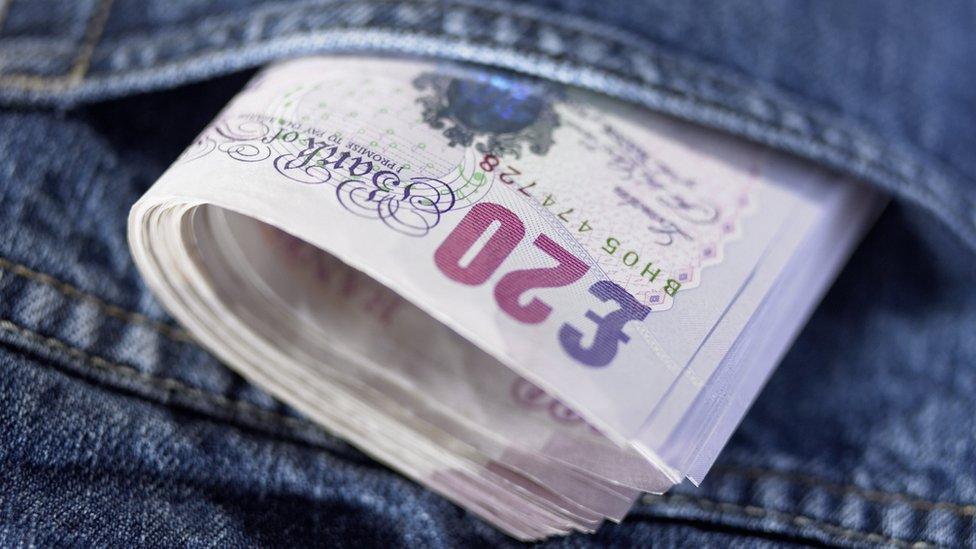
Figures from HMRC show that on 30 November 125,000 jobs in Wales were furloughed - protected under the UK government's Coronavirus Job Protection Scheme.
By the end of December that had risen to 158,700 and provisional estimates from HMRC report that had increased to 178,000 by the end of January.
That accounts for 14% of Welsh jobs.
The furlough scheme is UK-wide, and the chancellor announced it will be extended until the end of September.
The UK government will continue paying 80% of employees' wages for hours they cannot work but employers will be be asked to contribute 10% in July and 20% in August and September.
Last year, the Welsh government criticised the chancellor for not extending the furlough scheme when Wales went into its firebreak lockdown.
The chancellor also extended the £20 weekly increase to Universal Credit - introduced in response to the coronavirus pandemic in April 2020 - for another six months.
Figures for January show there were around 280,000 people receiving Universal Credit in Wales then.
Labour and some Conservative MPs, including Preseli Pembrokeshire MP Stephen Crabb, have been calling for the weekly increase to be extended for at least 12 months or more.
Universal Credit decisions apply to claimants in Wales because it is a UK-wide benefit.
Mr Sunak also outlined details of a new UK-wide payment for self-employed workers. He announced that a fourth Self-Employed Income Support Scheme will be available to claim from next month worth 80% of three months' average trading profits - up to £7,500 in total.
When the scheme was launched it was based on tax returns for 2018-2019, but due to new data being available the Treasury says more newly self-employed people will now be eligible.
What's happening to taxes?
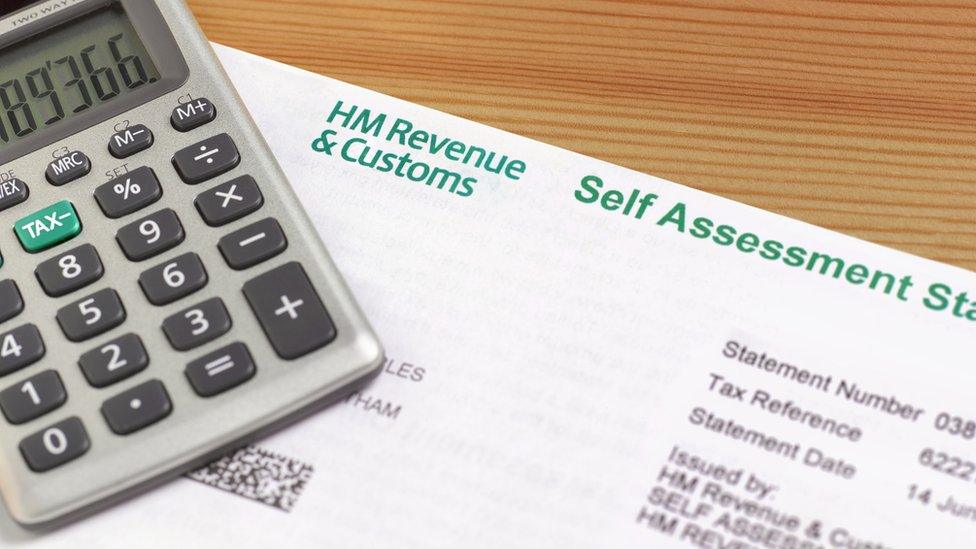
The chancellor extended the stamp duty holiday for property sales in England to June. But the equivalent tax - land transaction tax - is devolved in Wales so this will be a matter for the Welsh Government to decide.
He announced no changes to rates of income tax, national insurance or VAT but froze income tax thresholds from 2022 to 2026.
The personal income tax allowance is to be frozen at £12,570 and the higher rate income tax threshold is to stay at £50,270.
Some taxes are devolved in Wales, external, but the chancellor is raising corporation tax - which applies in Wales - from its current level of 19% to 25% in April 2023. However, the rate will stay at 19% for about 1.5 million smaller companies in the UK with profits of less than £50,000.
The reduced level of VAT for hospitality firms across the UK will remain at 5% until the end of September.
An interim 12.5% rate will then apply for the following six months.
Your local area

There were a couple of announcements that might affect your local area.
The Treasury announced a £150m UK-wide pot to help community groups take over their local struggling pubs, arts venues or sports clubs.
It's being dubbed the "Community Ownership Fund", and will allow community groups to bid for up to £250,000 of matched-funding to help them buy local assets to run as community-owned businesses.
Mr Sunak also announced £4.8m to pilot a hydrogen production centre in Holyhead in Anglesey, which would produce and distribute hydrogen made using renewable energy to use in HGVs.
The Treasury said this hydrogen would be used to "decarbonise high carbon-emitting transport" as part of plans to reach net zero carbon emissions by 2050.
The Budget also brought forward £58.7m of funding over the next five years for investment in three "City and Growth Deals", in Swansea Bay, north Wales and mid Wales.
City and Growth Deals use funding from the Welsh Government, UK government and other organisations including businesses and universities to support regeneration projects and economic growth in areas such as agriculture, infrastructure, transport and technology.
The chancellor also announced £30m in funding towards a rail testing complex in south Wales, located at the Nant Helen surface mine and Onllwyn coal washery at the head of the Dulais and Tawe valleys.
The Welsh Government had estimated the project would cost about £150m, and the Treasury says it will "match fund" up to £30m, with the remainder coming from the Welsh Government and private sector investment.
Tackling the virus
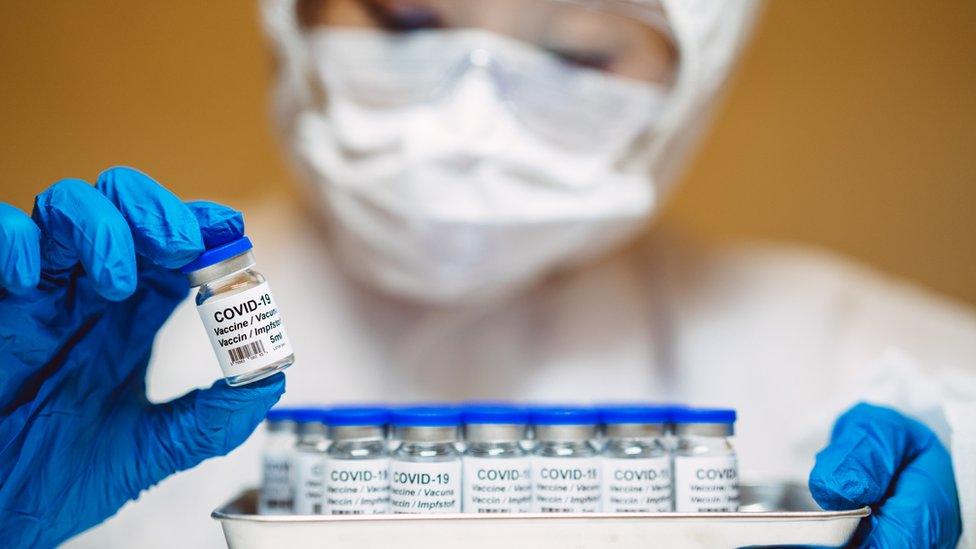
The UK's Covid vaccination rollout will receive an extra £1.65bn in the Budget and the chancellor announced £22m of the programme's funding will be used in a trial to see if mixing different vaccine doses works.
Wales will continue to get a proportional share of vaccines and the Welsh Government plans to offer all adults in Wales a first dose of the vaccine by 31 July 2021.
Extra funding for Wales?
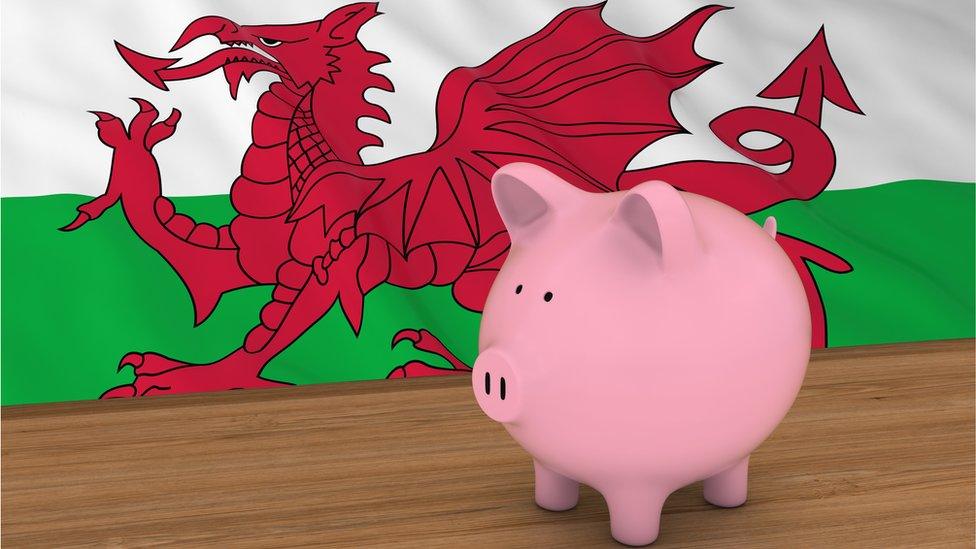
Because some areas are devolved, any announcements around things like support for apprenticeships, culture, the NHS and business grants will be England-only.
Rishi Sunak said that the majority of the measures he announced will apply to people "in all four nations" of the United Kingdom and that the Budget will result in an extra £740m for the Welsh Government.
The money Welsh ministers will get to respond to Covid will be less from April, but there will be more to spend on the pandemic in the coming year than previously announced.
On Tuesday the Welsh Government announced its final budget for the year and said it would spend an extra £1.1bn in the next financial year.
That included an extra £224m for housing, schools and other infrastructure, £630m for health and social care and £200m set aside for businesses support.
- Published3 March 2021
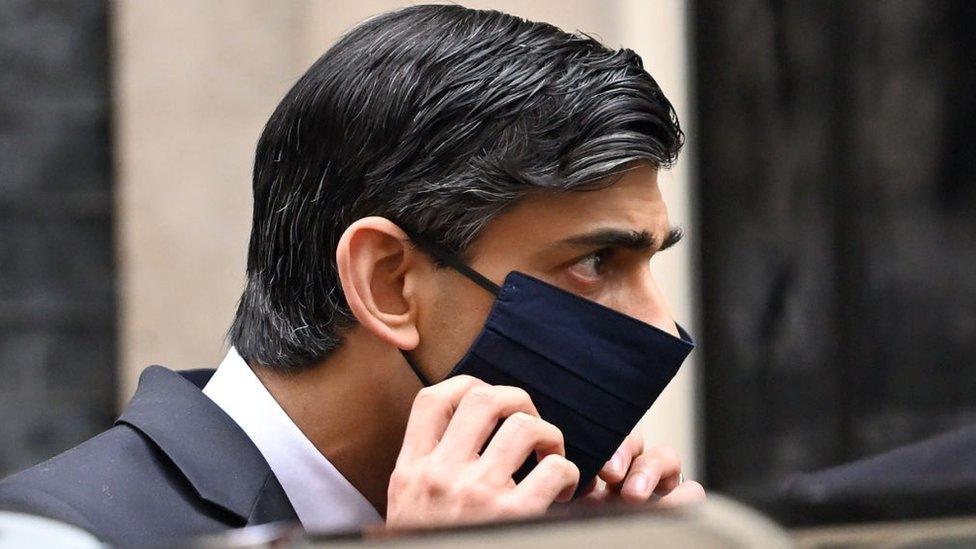
- Published26 October 2021
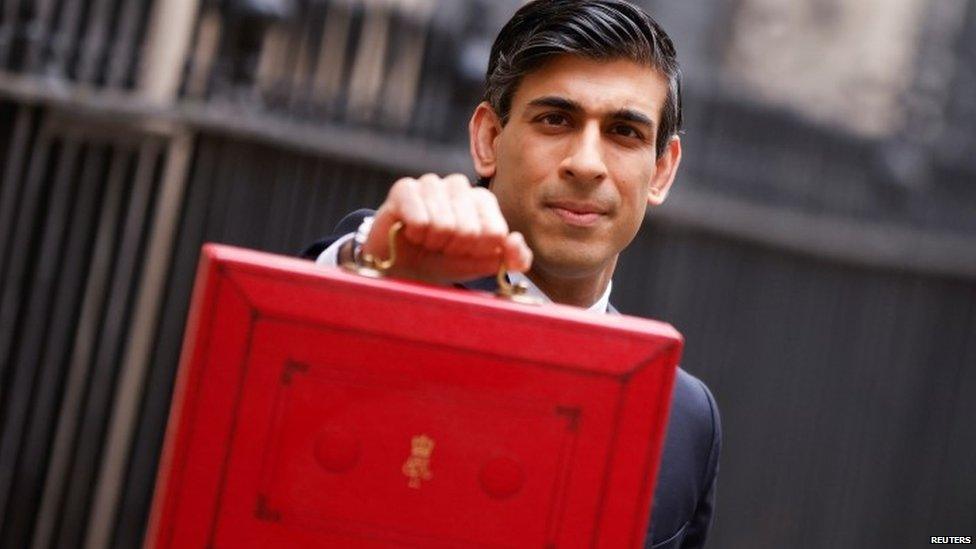
- Published2 March 2021
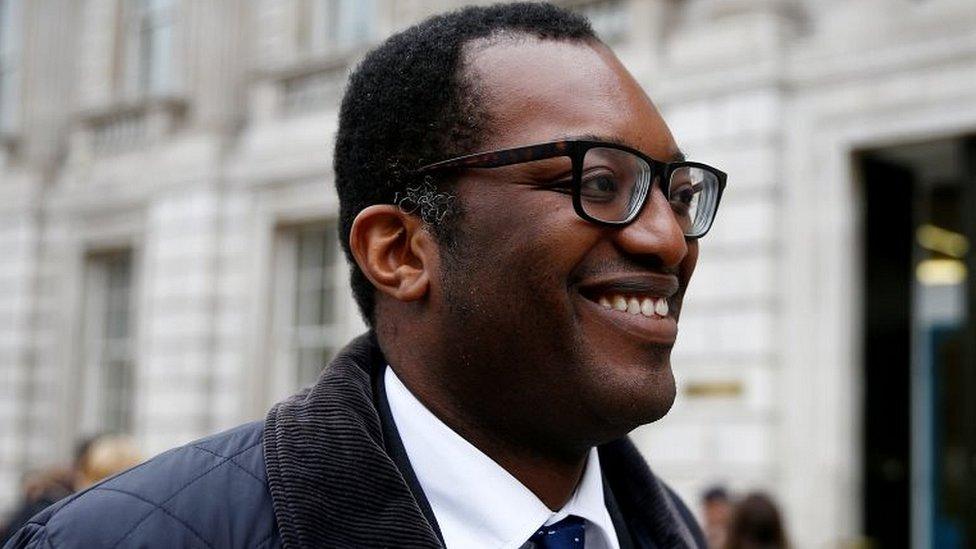
- Published2 March 2021
